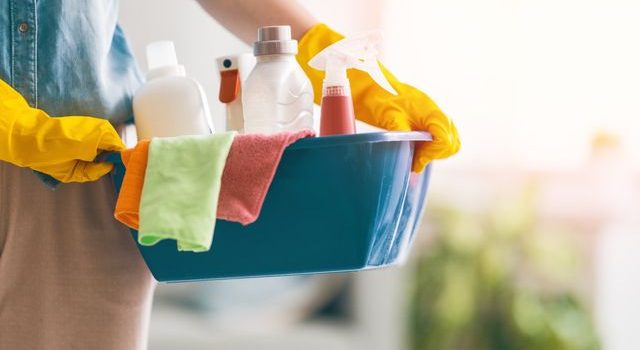Part of a maid’s responsibility is cleaning the house. Dirt, dust, and dander have to be brushed and thrown out. But there are times houses are so badly neglected something worse grows out.
Molds are a common problem in houses with poor ventilation and poor humidity management. That’s why professional housekeepers should be hired to keep the house from being overrun with mold. Merry Maids have competent professional housekeepers dedicated to help you prevent this type of infestation.
What is Mold?
Molds are a variety of fungi that grow in a form similar to fiber or cotton. These hair-thin parts of the mold are called hyphae, and extensions of the mold are considered a singular organism. There are over a thousand species of molds but the most notable and most common are 11 species.
Molds have largely been destructive, appearing first in spoiled food, rotting wood, dilapidated houses, and other things in various states of decay. It was only when the medicinal properties of mold did it contribute much to humanity, with various compounds extracted as components of antibiotics and antifungals, and its role in the production of food products.
Aside from the medicinal Penicillium species, there are molds that can destroy houses. Species such as Alternaria and Aspergillus are among the most common. The most dreaded type of mold is Stachybotrys, also known as black mold.
Aspergillus is the most common type of mold found in the US and appears in various colors such as orange, green, yellow, or red.
Molds cause a variety of diseases, and prolonged exposure to its spores eventually leads to mold sensitivity. The symptoms of mold are similar to that of an allergic reaction. Chronic complications of mold sensitivity include a weakened immune system and chronic lung disease.
It’s not only the human body that suffers from mold infections. Molds cause more damage to wood and houses than fire and termites combined. In the US alone, there are more than 40 million buildings and structures affected by mold. The cost to repair is a minimum of $500, bringing a collective $20 trillion dollars a year. This can be taken as good news for mold removal experts or bad news altogether for homeowners.
Where do Molds Grow?
Molds grow where there is a high content of moisture. It doesn’t matter if the interior of the house has heat high enough to kill organisms as mold is hardy. The thousands of species of molds have specialized themselves in thriving in places where no other animals would.
In the tropics, molds spread faster due to the unstable air currents. The heat allows for the spores to spread freely and it actually increases the activity of molds. In cold weather, molds may be slow acting but they’re tougher to kill as they have developed better resistances to increase their likelihood for survival. In short, molds in hot weather spread faster, and molds in cold weather live longer.
Molds only grow if there’s enough biomaterial to get their nutrients from and enough moisture to help them transport these nutrients into their bodies. That’s why they thrive on wood, or any other material that can be considered organic. They also grow faster in places where there’s no direct sunlight, or they’re undisturbed.
What Kills Mold?
Mold is killed with both natural and artificial substances. The most common household substance you can use in taking out mold is white vinegar. You don’t want to use apple cider as this also contains a type of fungus that ferments sugars, so spraying them on mold might kill the mold that’s already there, but you’re reintroducing a new one to the location.
White vinegar is extremely effective in killing deep-seated mold in wood. The reason is that vinegar permeates wood better than artificial compounds. You can spray a spot and leave it to soak. It’s going to smell sour but at least the area that had just been sprayed will not have a mold regrowth in a long time.
Bleach and alcohol also work to kill mold. They’re effective only if the mold is at the surface level of materials. They don’t permeate materials such as wood as easily as vinegar but they can kill the organism upon contact. Vodka and other spirits contain enough alcohol to kill molds, so you can take a bottle of your driest liquor and use it to clean your house of molds.
How Do You Prevent Mold Growth?
Mold growth is easy to prevent. As long as the humidity levels in your house are at an all time low, there’s not enough moisture for molds to thrive. This also means fixing water damage in walls and basements as these are the usual places molds grow from.
It’s also important to water- and damp-proof walls so these sites don’t give the perfect environments for mold growth. You may need to consult with house inspectors to make sure this is implemented. There are even paints available that act as a water-proofing barrier and have properties that inhibit mold growth.
When To Hire a Professional Mold Expert?
The only time you should hire a professional mold expert is if the molds have been growing for too long, or have invaded the wood and it is beyond repair. Professional house cleaners cannot or should not be the ones cleaning this type of infestation, unless it’s localized and minor.
Some professional cleaning services have staff that are trained for mold removal or treatment, but this is rare. What professional cleaning staff can do for you is to make an assessment of whether mold issues can be solved or not.


